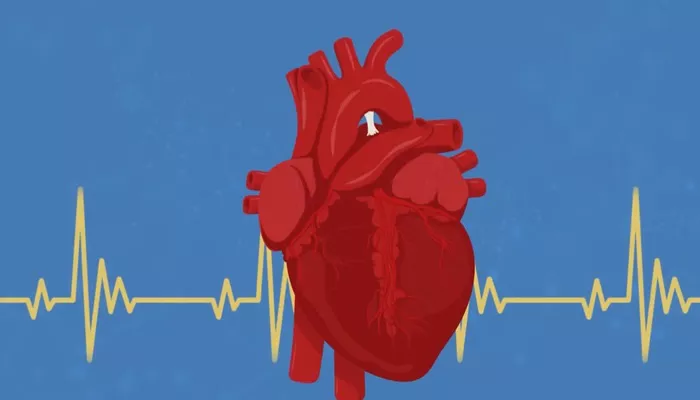Hyperlipidemia, commonly known as high cholesterol, is a condition where there are elevated levels of lipids (fats) in the blood. This condition increases the risk of cardiovascular diseases, such as heart attacks and strokes. Preventing hyperlipidemia involves making lifestyle changes and adopting healthy habits. Here are the six best ways to prevent hyperlipidemia:
1. Adopt A Heart-Healthy Diet
One of the most effective ways to prevent hyperlipidemia is by adopting a heart-healthy diet. This involves:
Reducing Saturated and Trans Fats: Saturated fats, found in red meat, butter, cheese, and other animal products, can raise your LDL cholesterol levels. Trans fats, found in many fried and commercially baked products, are even worse for cholesterol levels. Aim to limit these fats as much as possible.
Increasing Fiber Intake: Soluble fiber can reduce the absorption of cholesterol into your bloodstream. Foods high in soluble fiber include oats, beans, lentils, fruits, and vegetables. Aim to include a variety of these foods in your diet daily.
Eating Omega-3 Rich Foods: Omega-3 fatty acids, found in fatty fish like salmon, mackerel, and sardines, can lower LDL cholesterol and triglycerides while raising HDL cholesterol. Plant sources of omega-3s include flaxseeds, chia seeds, and walnuts.
Choosing Healthy Fats: Replace unhealthy fats with healthy ones. Use olive oil, avocado oil, and canola oil instead of butter or lard. Incorporate nuts, seeds, and avocados into your diet.
Limiting Sugar and Refined Carbohydrates: High sugar intake can lead to weight gain and increased triglyceride levels. Opt for whole grains over refined grains and limit sugary beverages and sweets.
SEE ALSO: How Often Lipid Panel for Hyperlipidemia
2. Engage in Regular Physical Activity
Regular physical activity is essential for maintaining healthy cholesterol levels. Exercise helps raise HDL cholesterol (the “good” cholesterol) and lower LDL cholesterol (the “bad” cholesterol) and triglycerides. Here are some tips for incorporating exercise into your routine:
Aim for at Least 150 Minutes of Moderate Aerobic Activity per Week: Activities like brisk walking, cycling, swimming, or dancing can help keep your cholesterol levels in check.
Include Strength Training Exercises Twice a Week: Strength training, such as lifting weights or using resistance bands, can help improve your overall metabolic health.
Stay Active Throughout the Day: Incorporate physical activity into your daily routine by taking the stairs, walking during breaks, and engaging in active hobbies like gardening or playing sports.
3. Maintain A Healthy Weight
Being overweight or obese can negatively impact your cholesterol levels. Losing even a small amount of weight can help lower your LDL cholesterol and triglycerides while raising HDL cholesterol. Here are some strategies for achieving and maintaining a healthy weight:
Set Realistic Goals: Aim for a gradual and steady weight loss of 1-2 pounds per week by making sustainable lifestyle changes.
Monitor Your Caloric Intake: Keep track of your daily calorie intake and make adjustments as needed to achieve a calorie deficit.
Adopt Mindful Eating Practices: Pay attention to hunger and fullness cues, avoid emotional eating, and practice portion control.
Incorporate Regular Physical Activity: Combine dietary changes with regular exercise to enhance weight loss and maintain muscle mass.
4. Quit Smoking
Smoking is a major risk factor for cardiovascular disease and can negatively impact your cholesterol levels. Quitting smoking can improve your HDL cholesterol levels and reduce your overall risk of heart disease. Here are some tips to help you quit smoking:
Seek Professional Help: Talk to your doctor about smoking cessation programs, medications, and counseling that can support your efforts to quit.
Use Nicotine Replacement Therapy: Products like nicotine gum, patches, and lozenges can help reduce withdrawal symptoms and cravings.
Avoid Triggers: Identify situations or activities that trigger your urge to smoke and develop strategies to avoid or cope with them.
Stay Positive: Quitting smoking is challenging, but it is one of the best things you can do for your heart health. Celebrate your progress and stay motivated.
5. Limit Alcohol Consumption
While moderate alcohol consumption may have some heart benefits, excessive drinking can raise your triglyceride levels and contribute to weight gain. Here are some guidelines for alcohol consumption:
Follow the Recommended Limits: For women, limit alcohol to one drink per day. For men, limit alcohol to two drinks per day. One drink is typically considered to be 12 ounces of beer, 5 ounces of wine, or 1.5 ounces of distilled spirits.
Choose Heart-Healthy Options: If you do drink, opt for red wine, which contains antioxidants that may benefit heart health.
Be Mindful of Your Drinking Habits: Avoid binge drinking and be aware of how alcohol affects your overall health and weight.
6. Manage Stress
Chronic stress can lead to unhealthy behaviors, such as overeating, smoking, and drinking, which can negatively impact your cholesterol levels. Managing stress is crucial for maintaining overall health and preventing hyperlipidemia. Here are some strategies for managing stress:
Practice Relaxation Techniques: Techniques such as deep breathing, meditation, yoga, and progressive muscle relaxation can help reduce stress levels.
Stay Physically Active: Exercise is a natural stress reliever and can help improve your mood and overall well-being.
Connect with Others: Social support is important for managing stress. Spend time with family and friends, or join support groups and social activities.
Make Time for Hobbies: Engage in activities that you enjoy and that help you relax, such as reading, gardening, or listening to music.
Conclution
By adopting these six strategies, you can effectively prevent hyperlipidemia and reduce your risk of cardiovascular disease.
Making these lifestyle changes can have a profound impact on your overall health and well-being.


